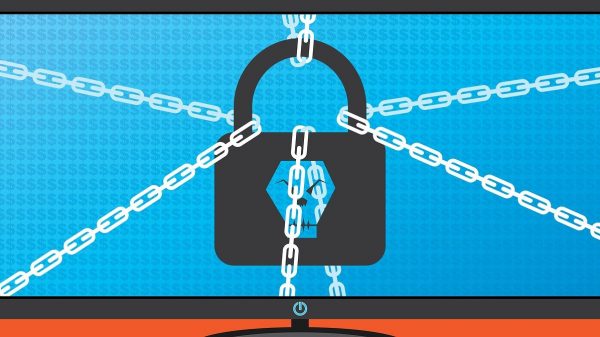By Aanchal Mundada and Saurabh Bora
The advent of India’s online gaming industry dates back to more than 2 decades when console and PC gaming brought Indians to digital gaming platforms. With higher disposable incomes, new gaming genres, increased smartphone users, gaming is becoming increasingly accessible to India’s massive population.
The online gaming websites host various forms and formats of games including cash games, guaranteed prize pools, tournaments, in which players compete amongst each other, etc. India’s gaming market size grew 21% in 2021 and is expected to reach US$ 1.9 billion by 2024[1].
Laws regulating online gaming in India
In the wake of the gaining impetus by the gaming industry, the Government of India has appointed Ministry of Electronics and Information Technology (MeitY) to regulate the online gaming industry in India. In April 2022, MeitY has amended the Intermediary Guidelines and Digital Media Ethics Code Rules, 2021 (applicable to social media intermediary) to regulate online gaming websites.
In keeping with this, the tax regime is also evolving to match up with the brisk changes in the gaming industry. In this article income tax provisions relating to deduction of tax on winnings from online gaming, its nuances and open areas are discussed.
Hitherto, the income by way of winnings from card games or other games of any other sort was chargeable under the category ‘winnings from lottery or crossword puzzle, etc’. In terms of Section 115BB of the Income-tax Act, 1961. Taxes were required to be deducted under Section 194B at the rate of 30% only on winnings exceeding the threshold of INR 10,000.
The threshold limit for deduction of TDS provided under the earlier provisions resulted in players withdrawing amounts in multiples of INR 10,000 to escape from the trigger of deduction of TDS on such winnings. The Hon’ble Finance Minister in her Budget speech 2023 noted that deductors (online gaming websites) are splitting a winning into multiple transactions each below INR 10,000 to avoid deducting TDS, which is not the intention of the statute. This resulted in the Government becoming attentive to the gaming industry and understanding the need to introduce a specific mechanism for charging income earned from online gaming.
Introduction of Section 115BBJ and 194BA vide Finance Act, 2023
New provisions have been introduced in the Income Tax Act specific to taxing winnings from online gaming vide Section 115BBJ, which provides a rate of 30% for the purpose of levying income tax on such winnings. Also, Section 194BA has been inserted, which deals with the liability to deduct TDS on winnings at the time of withdrawal of ‘net winnings’, and on balance of such net winnings in the user account, if any at the end of the financial year. The net winnings are required to be computed in the manner prescribed under the Rules and the threshold limit of INR 10,000 is no longer applicable.
STAY ON TOP OF TECH POLICY: Our daily newsletter with top stories from MediaNama and around the world, delivered to your inbox before 9 AM. Click here to sign up today!
Overlapping of the charging section and the manner of deducting TDS
Section 194BA, which deals with TDS on online gaming was earlier proposed to be made effective from 1st July 2023. Consequently, Section 194B, the erstwhile provision that governed online games, was amended to be operative on online games until 30th June 2023. Au contraire, the charging provision for TDS on online games, i.e., Section 115BBJ, was proposed to come into force on 1st April 2023. The misalignment in the dates of applicability of the two new sections was one of the preliminary issues faced by the gaming industry. In the transitional phase, there was a loose connection between the applicability of the charging section and the manner in which TDS is required to be deducted.
In order to plug together the dates of implementation of both the provisions, the Finance Bill, 2023 was amended and Section 194BA was brought into force from 1st April 2023 instead of the earlier proposed date of 1st July 2023. Although the date of implementation of both the provisions has fixed certain challenges, absence of any prescribed mechanism for computing the ‘net winnings’ is causing nightmares to the online gaming intermediaries. There is no clarity as to what would be construed as ‘net winnings’, on which the TDS is required to be deducted.
Ambiguity in the meaning of the term ‘net winnings’
The term ‘winnings’ has not been defined under the Act. There are divergent views possible on what would be construed as winnings. For instance, a person used INR 100 to play a game which involved a prize money of INR 1,000. The said prize money was pooled by 10 players to play the game. At the end of the game, the winning player was handed over INR 1,000 which was pooled at the start of the game. In this case, what would be construed as its ‘winnings’ – INR 1,000 or INR 900 (INR 1,000 – INR 100).
As per the dictionary meanings, ‘winnings’ is something won such as money won by success in a game or competition. One can, therefore, interpret that amount net of money used to play the game i.e., INR 900 is the winnings from the game. Whereas another interpretation is possible that the prize money is the total amount won irrespective of the initial investment/ expenditure.
It is relevant to note that Section 58(4) of the Act states that no deduction would be allowed against income earned from winnings. As such there is a possibility that the department may take a view, that the intention of the law is crystal clear that they would not allow any kind of expenditure or allowance against winnings including that towards the amount used to play an online game.
However, if the Department takes a liberal approach and allows deduction of the amount used to play an online game, the concern that would arise is whether the entire amount deposited by a player in the wallet be allowed as a deduction to arrive at net winnings or only the amount appropriated towards a game be allowed to be deducted. In either case, the amount liable to deduction of TDS would be the same; only in cases where the deduction of the entire deposited amount is allowed, the liability to deduct TDS may get deferred. For instance, Mr. A deposits INR 500/-, uses INR 100/- towards playing a game, wins INR 1,000/- (including INR 100/- used to play) from the game and withdraws INR 900/- during the year. In this case, either of the following mechanism could be adopted to withhold:
| Reduction allowed | Possible withholding tax implications |
| INR 100/- i.e., amount used to play game |
|
| INR 500/- i.e., entire amount of deposit |
Total TDS: INR 900/- |
Increase in compliance burden of the online gaming platforms
With the threshold limit of INR 10,000/- removed, TDS will have to be deducted even in case of withdrawal by players generating miniscule income from such games.
Set-off of losses of one contest/ game against another
Another issue that is yet to be fixed include whether losses from a contest or game can be set off against another contest or game and whether balance reflecting as on 1st April 2023 would be considered in computing net winnings.
It is expected that all the unsettled issues under the new regime for deduction of TDS on net winnings from online games will be put to rest post detailed guidelines and suitable clarifications from the Government. What remains a mystery is whether the guidelines will burden the industry with further compliances or give certain leniency to boost the sector’s growth.
Food for thought – Whether online gaming platforms can be considered as ‘person responsible for paying’?
Section 194BA requires the ‘person responsible for paying’ to deduct TDS on income from any online game. Section 204, which specifies who can be considered as the person responsible for paying, does not cover online gaming websites.
The formats of online games where the role of the online gaming intermediary is limited to providing a platform to the interested players, collecting amount from the players and at the end of the game, distributing the same to the winner, is very similar to the offline games where the players gather to play a game, set aside an amount and all the players who lost the game pay the said amount to the winning player. Here, the player/s who lost the game is/ are the person responsible for paying. In such situations, each and every player who is responsible to pay an amount would be the person responsible for paying and would be required to deduct TDS.
Further terms and conditions of each gaming platform would also be a factor in determining whether it takes any responsibility to make good the losses in the event of a default by any player.
Recently in the case of Uber India Systems (P.) Ltd. v. JCIT[2], Mumbai ITAT it was held that, Uber B.V. provided lead generation services on a principal-to-principal basis via an app for which service fee was charged and the role of Uber India Systems (P.) Ltd was only to act as a payment and collection service provider of Uber B.V. Thus, Uber India Systems (P.) Ltd could not be held as an ‘assessee-in-default’ for non-deduction of tax under Section 194C of the Act, in respect of payments made to drivers on behalf of Uber B.V. In this case, the contract for providing cab service was between the user of the app and the driver-partner. As such, the user of the app is the person responsible for paying and not Uber India Systems (P.) Ltd. which is merely acting as the facilitator.
When it comes to Section 194BA of the Act, it defines ‘online gaming intermediary’ to mean an intermediary that offers one or more online games. The responsibility to deduct TDS is on the ‘person responsible for paying’. Thus, for withholding tax obligation to arise under Section 194BA, the online gaming platforms should fall within the ambit of the phrase ‘person responsible for paying’ as outlined under Section 204 of the Act.
Even after outlining the definition of ‘online gaming intermediary’ the issue w.r.t whether online gaming websites would be construed as a person responsible for payment or not still persists, since bare provisions do not cast an obligation on ‘online gaming intermediary’ for withholding of taxes.
Anchal Mundada, Principal Associate & Saurabh Bora, Associate at Economic Laws Practice
This post is released under a CC-BY-SA 4.0 license. Please feel free to republish on your site, with attribution and a link. Adaptation and rewriting, though allowed, should be true to the original.
Also Read:
- Gaming Tax Amendments In Budget 2023: What Are Online Gaming Bodies Worried About?
- Taxation Of Online Gaming: Key Budget 2023 Proposals And Implications
- “Immediate And Existential Threat To The Entire Gaming Ecosystem”: A Lawyer’s Concerns On Possible Tax Changes
- Guide: The Impact Of India’s Online Gaming Rules And Fact-Checking Policies




























